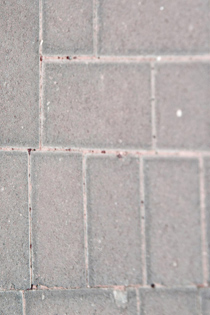Luna de Araujo | 15.01.2021
The medical and social recognition and treatments of persistent pain vary according to the diagnosed diseases and the social, economic and family situations in which the affected persons find themselves. Some repetitions and disruptions underlying and common to the experiences of the women who participated in this research nevertheless make it possible to understand the entanglement of the biological, material, practical and structural aspects that shape the chronicity of their pain. Through Flora Weill's story, her painful trajectory and [...]
Sonia Chardonnel, Sandrine Depeau, Thomas Devogele, Boris Mericskay et Jean-Paul Thibaud | 12.01.2021
Cet article s’inscrit dans le champ de recherche des pratiques de mobilités quotidiennes enfantines étudiées à travers des traces numériques issues de capteurs (géolocalisation, audiovisuels) et enrichies d’informations sémantiques et contextuelles. Nous montrons comment la trace constitue une notion partagée entre les différentes disciplines (géographie, informatique, psychologie environnementale, sociologie) engagées dans la recherche Mobi'kids qui vise à comprendre les conditions d’évolution des mobilités quotidiennes d’enfants. Nous proposons d’abord un cadre conceptuel autour de la trace pour définir de façon [...]
Modèles géographiques pour un événement hybride
Jacques Lévy et Sébastien Piantoni | 05.01.2021
In a pandemic, hybrid mechanisms emerge and the social world that results of them is not easy to decipher. It is all the truer in the case of the SARS-CoV-2, we still don’t know everything about. This paper tries to identify and analyse the geographies of urbanity of states. It questions the relationships between the multiple spatial layers that manufacture this troublesome co-spatiality. [...]
Jacques Lévy | 18.12.2020
Cet article est proposé par le rhizome Chôros. Pour expliquer la dynamique de la pandémie du Sars-CoV-2 de 2020, de nombreux « facteurs » simples ont été proposés : l’âge ou des prédispositions génétiques des patients, la pollution… dont certains, d’autre moins, ont résisté à l’avalanche des informations et aux avancées de la recherche. D’autres, comme la température (le [...]
Rachel Brahy et Catherine Bourgeois | 11.12.2020
This interview with Yves Winkin and Nathalie Zaccaï-Reyners focuses on notions of enchantment, imagination, games or effervescence. It questions both the complex links between spatialities, collective action and social interactions, but also explores deeper questions such as solicitude, happiness or ways of interpreting the meaning of life. From this interview emerge concrete perspectives and tools to analyze situations as varied as the tourist experience, ludic experience, public relations or the dynamics of intercomprehension or disillusionment. [...]
Laurent Cailly et Nicolas Oppenchaim | 23.11.2020
L’affirmation de la mobilité comme norme, comme principe de gestion des distances, comme socle des modes de vie contemporains ou encore comme facteur de recomposition des territorialités, a fait du rapport des sociétés au mouvement un objet d’étude central et transversal de nombreuses disciplines de sciences humaines et sociales... [...]
Olivier Lazzarotti | 11.11.2020
The CoviD-19 pandemic reveals a singular moment in the World. A new type of inhabitant was invented, that of the confined inhabitants. What does it teach us about the contemporary world? How does it inform us about the importance and the stakes of human habitation? But in what way does it also specifically raise issues that go far beyond it? [...]
Catherine Aventin | 30.10.2020
During three days and three nights a central car park is turned into a vegetable garden by a street theater company ( The Phun) The garden will disappear without warning as suuddenly as it appeared. This article proposes to explore how poetic fiction interacts with the daily use and perceptions of this place by the inhabitants. While the performers are busy growing, watering, picking plants and feeding farm animals the enchantment works and turns ordinary reality into extraordinary reality. [...]
Matthieu Adam, Nathalie Ortar, Luc Merchez, Georges-Henry Laffont et Hervé Rivano | 26.10.2020
Bikeability refers to the capacity of spaces to accommodate, facilitate and secure cycling practices. GIS-based, its evaluation, is built on indicators which are based on projections of what is increasing/decreasing the ability to cycle in a given place. However, the confrontation of these evaluations with the experience of cyclists remains to be built and is the goal of the Véléval project. The survey combines three methodological tools: the measurement of trips thanks to GPS tracks, the analysis of video [...]
Rachel Brahy, Catherine Bourgeois et Nathalie Zaccaï-Reyners | 16.10.2020
Que permettent d’appréhender et de penser aujourd’hui les notions classiques d’effervescence et d’enchantement dans le champ des sciences humaines et sociales ? Quels types de problématiques sont-elles susceptibles d’éclairer de nos jours ? Leur héritage ouvre-t-il à de nouveaux usages, à de nouvelles compréhensions ? Comment sont-elles bousculées, redessinées, et reliées à d’autres ressources ? C’est à ces [...]


